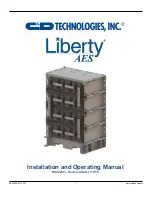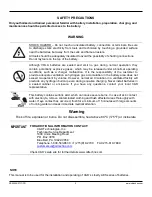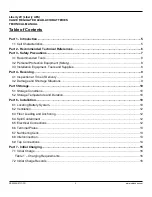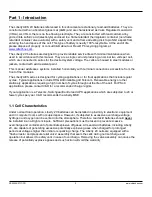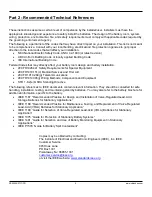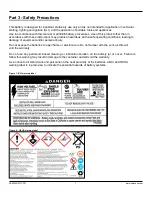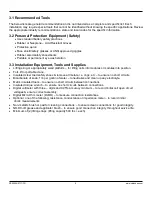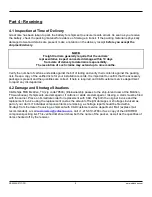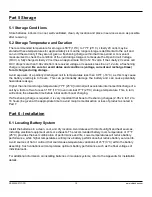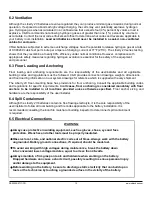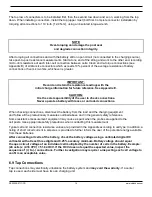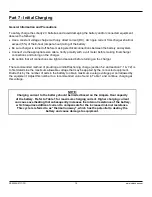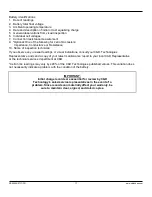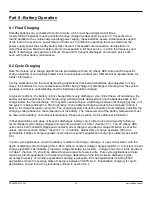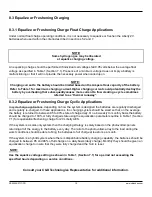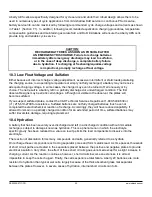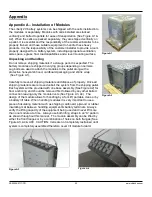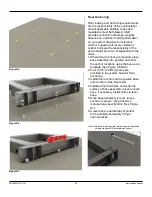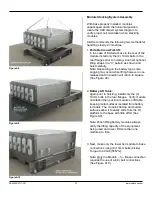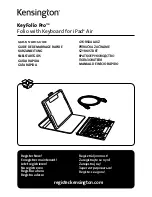
RS02250/0717/CD
15
www.cdtechno.com
Part 7 - Initial Charging
General Information and Precautions
To safely charge the Liberty 2V batteries and avoid damaging the battery and/or connected equipment,
observe the following:
Use a constant voltage charger with only direct current (DC). AC ripple current from charger shall not
exceed (5%) of the 8-hour (ampere-hour) rating of the battery.
Be sure charger is turned off before making electrical connections between the battery and system.
Connect via the appropriate size cable. Verify polarity with a volt meter before making final charger
connections and turning on the charger.
Be certain that all connections are tight and secured before turning on the charger.
The recommended method of providing an initial/freshening charge (section 5.2 and section 7.1 & 7.2) is
to first determine the maximum allowable voltage that may be applied by the connected equipment.
Divide this by the number of cells in the battery to obtain maximum average voltage per cell allowed by
the equipment. Adjust this number to a recommended value found in Table 1 and continue charging at
this voltage.
NOTE:
Charging current to the battery should be limited based on the Ampere Hour capacity
of the battery. Refer to Table 1 for maximum charging current. Higher charging current
can cause overheating that subsequently increases the internal resistance of the battery,
which requires additional current to compensate for the increased internal resistance.
This cycle is referred to as
“thermal runaway”, which has the potential to destroy the
battery and cause damage to equipment.

